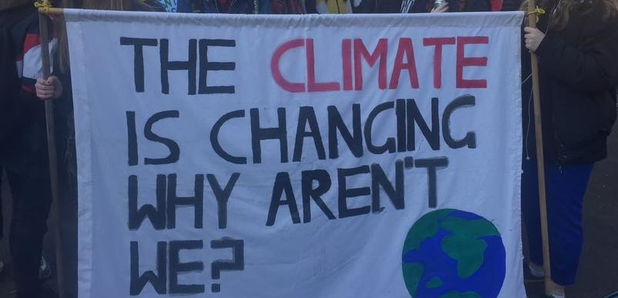On Air Now
Heart's Club Classics with Toby Anstis 7pm - 11pm
12 August 2019, 15:22 | Updated: 12 August 2019, 15:24

A UN special report on the impacts of global warming is to be read aloud this week as part of efforts to increase public engagement.
The Intergovernmental Panel on Climate Change (IPCC) report published last year will be read in its entirety between Monday and Friday this week at the Edinburgh Festival Fringe.
All 223,000 words in the report will be read out loud by a cast of around 100 performers, writers, scientists and members of the public.
Participants will be asked to read for around 20 minutes each, as well as explaining why they are there and why the report is important.
Readings will start from page one of the report at around 11am on Monday and are expected to last until 9pm.
The process will be repeated with around 10 hours of reading and 20 readers per day over five days, with the target of completing the reading by 9pm on Friday.
One of the event organisers, Katy Smith, speaking on the BBC's Good Morning Scotland programme, said the aim is to increase the public's engagement with the report.
Ms Smith said: "We were inspired by the full reading a few years ago of the Chilcot Report into the Iraq War and that feeling of bringing to light and engaging with and bringing the public into something really big and important.
"The IPCC report is designed to be read by policy-makers and civil servants but we really want, in the light of the inaction on the report, we really want the public to be engaging with this report and understanding what it means and talking about it.
"We need to make some vast changes to the way we live and we don't want that to be left to a few people to decide how we do that, we want that to be something that we all discuss - 'Hhow can we live and how can we stay within 1.5 degrees of global heating?'.
Ms Smith also said that while the report highlights the impacts of global warming of 1.5C, it also provides solutions to the issue, which have previously been overlooked.
"I think the thing that's really striking about the report that we didn't necessarily hear in the headlines when it first came out is that actually the report tells us almost all the solutions," she said.
"It tells us everything we need to do and it tells us how we need to do those things in a way that is fair to all the people of the world.
"My anger about the inaction on the report comes from this fact that I think people know that we've got problems, and that's what we think the IPCC report is about, but actually we also have the solutions.
"The only thing left is the political will and starting doing those solutions. So what we really want to gain from this is that people will start to understand that and can start to engage with their political representatives, the corporations they buy things from, anyone and everyone just to say we want change."